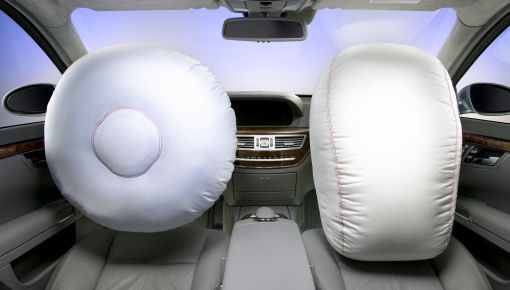NHTSA probes 30 million more vehicles with Takata airbags

The largest automotive recall in history could get larger still, based on the NHTSA’s latest investigation into vehicles equipped with Takata airbags. The NHTSA is investigating the safety of an estimated 30 million vehicles from the 2001 to 2019 model years, according to an internal government document obtained by Reuters and published on Sunday.
The engineering analysis will look into the risks of Takata airbag inflators with a desiccant, or drying agent, in both originally manufactured vehicles and those vehicles that may have been recalled and repaired with the drying agent. In the most sweeping recall ever, roughly 67 million vehicles from nearly two dozen automakers were recalled in the U.S. for airbag inflators supplied by Takata without the drying agent.
The original problem was limited to inflators that erupted from breaking down over time to high temperature fluctuations in high humidity regions. In rare but lethal instances, the erupting inflators spewed metal fragments into the heads and chests of drivers and front passengers. In the U.S., there were 19 reported deaths and more than 400 injuries. Over time, the NHTSA broadened the recall not just to regions with high humidity but to any Takata airbag inflator without the drying agent.
The NHTSA found no reported ruptures of airbag inflators with the drying agent, according to the document obtained by Reuters, yet questions remain.
“While no present safety risk has been identified…further study is needed to assess the long-term safety of desiccated inflators,” the document reportedly said.
The probe covers vehicles made by BMW, Chrysler (formerly FCA, now Stellantis), Ford, GM, Jaguar Land Rover, Mazda, Mercedes (Daimler AG), Nissan, Porsche, Subaru, Tesla, Toyota, and others.
Of the 67 million recalled vehicles, the NHTSA reports that about 50 million have had the airbags replaced. To check if your airbags need replacing, enter your VIN at the NHTSA’s dedicated Takata recall hub.

